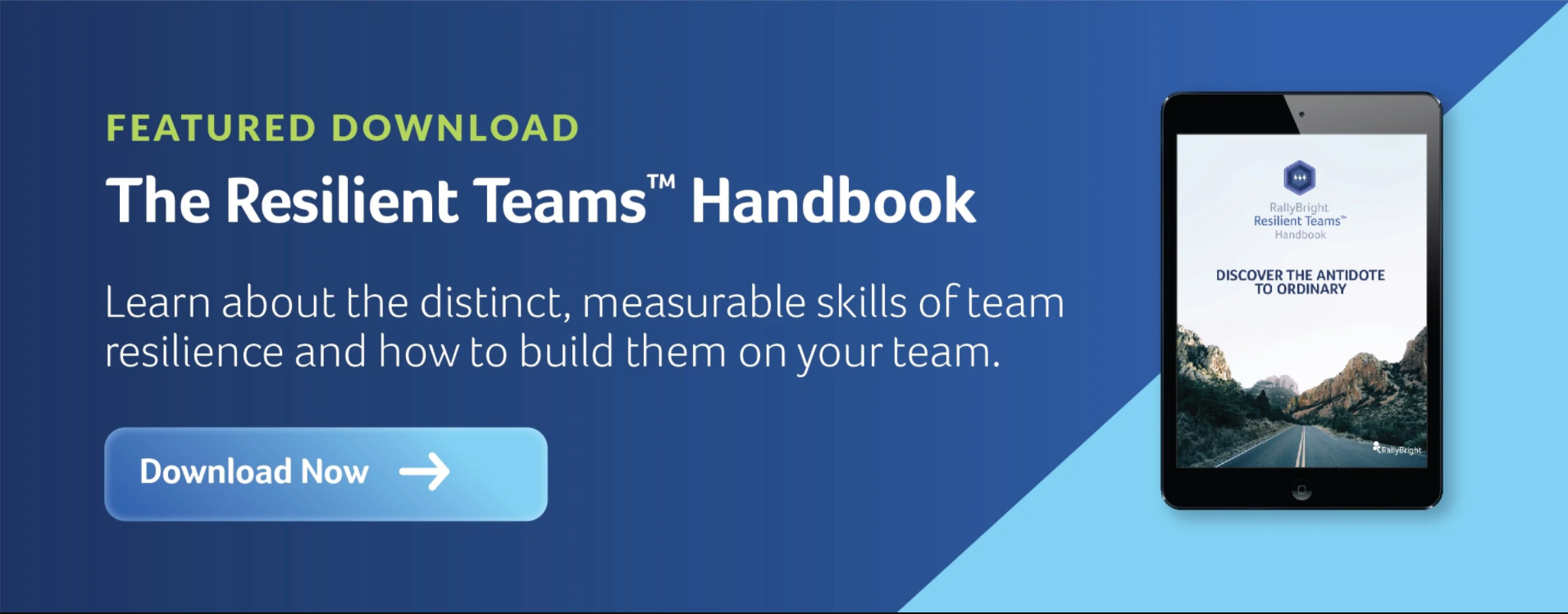There are always new buzzwords flying around the business world. One phrase that’s received a lot of attention the last few years is “growth mindset.” This term, pioneered by psychologist Carol Dweck, explains why some people thrive in challenging situations and others stagnate. But what is a growth mindset?
There’s some confusion around the term, and while it’s a useful concept, developing or nurturing a growth mindset isn’t easy or simple. Here’s a quick explainer on what it is and how you can use it in your workplace.
A Simple Growth Mindset Definition (It’s Not Just Being Positive!)
Understanding the concept fully involves dealing with some misconceptions that we all inherently hold, but Carol Dweck herself provides a straightforward growth mindset definition:
“In a fixed mindset students believe their basic abilities, their intelligence, their talents, are just fixed traits. They have a certain amount and that’s that, and then their goal becomes to look smart all the time and never look dumb. In a growth mindset students understand that their talents and abilities can be developed through effort, good teaching and persistence.”
Dweck initially focused her efforts on education, where these ideas have helped produce better outcomes for students. But the idea that you can get better at something is valuable in every area of life.
It’s important, however, to understand what growth mindset is not: it’s not simply your outlook, or about praising effort, or just optimism – in fact, these misconceptions are so common that Dweck had to take to the pages of the Harvard Business Review to refute them. Having a growth mindset means hard, often painful, work, and learning to recognize your own fixed-mindset behaviors.
How a Growth Mindset Helps Teams
From the outset, the first benefit of a growth mindset should be obvious: it means that your team is growing! If your business or the economy isn’t growing, that’s a crisis, so why should it be different for your team? A culture that encourages growth, mindset or otherwise, is inherently healthier than one that is stagnant.
More concretely, people with a fixed mindset tend to be more afraid of failure and thus less likely to seize new challenges or take risks. If failure means that you’re not as intelligent, of course people are going to tend to avoid it. But with a growth mindset, failure is a critical part of building new skills, and effort is rewarding. Teams that still operate with a fixed mindset are less likely to have healthy conflict and are less likely to be able to accept criticism and grow from it.
The fruits of a growth mindset are critical to a high-functioning team. They include behaviors and thinking like “sharing information, collaborating, innovating, seeking feedback, or admitting errors,” according to Dweck.
Developing a growth mindset can help when it comes to hiring and your overall employee experience as well. Fixed mindset individuals are more likely to see themselves as “the star”. They are less likely to compromise, and are often unwilling to take criticism or adjust to help the team. Placing a growth mindset of growth as the foundation of your hiring process and development means handling change and challenges gracefully.
Growth Can Be Painful, but It’s Worth It
A lot of companies are embracing the theory of a growth mindset, or saying they are. They use it in their internal documentation, their mission statements, or make it a part of their training and development. Often though, this is a shallow understanding that fails to grapple with the difficult parts of the concept.
Having a growth mindset is inherently not easy. It means confronting our own fixed-mindset behaviors, learning to admit mistakes and dealing with the consequences of failure. It is, by nature, challenging. This skill requires frequent re-appraisals and deliberate practice on the part of both individuals and teams. It’s not as simple as declaring that you have a growth mindset. As Dweck puts it: “the path to growth mindset is a journey, not a proclamation”.
The results are worth it though: employees at growth-mindset companies are happier, more innovative, and more willing to take risks. Now that you’ve got a better grasp of what this critical terms means, check out our advice on how to create a growth mindset team and get started on implementing these ideas in your workplace.



